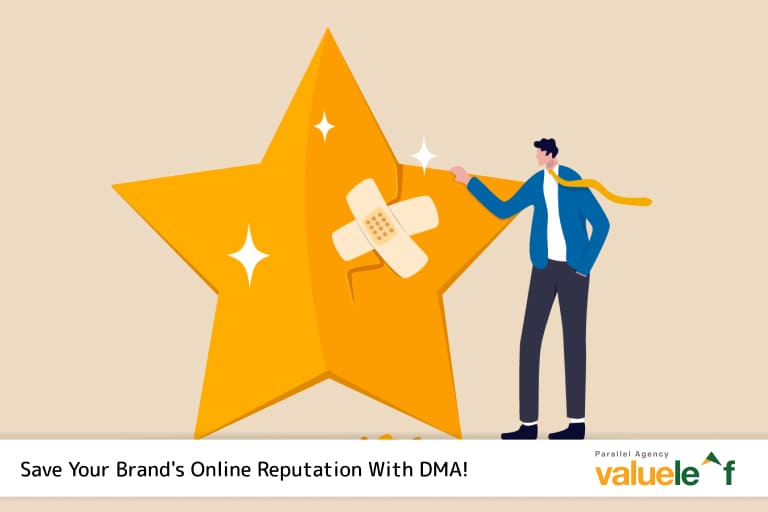Your online reputation can make or break your business. How often have you checked reviews or social media before deciding on a restaurant or a product? This means your online presence plays a massive role in attracting new customers and keeping the existing ones loyal. Online reputation is now a crucial part of any business’s success, and managing it effectively can be a game-changer for acquiring and retaining customers.
In this blog post, we’ll dive into how online reputation management (ORM) can help you maximize customer acquisition and retention. We’ll also explore essential tools, services, and strategies you can implement today.
Online Reputation Management (ORM)
Online Reputation Management (ORM) is all about controlling how your business is perceived online. It’s not just about keeping tabs on what people say about your brand; It’s all about taking control of your brand’s image online. Whether it’s through responding to reviews, engaging on social media, or optimizing your search presence, ORM helps ensure that people see the best of your brand.
Importance Of ORM In Business
People trust online reviews as much as personal recommendations. According to research, 91% of consumers read online reviews before making a purchase decision. What they see can greatly influence their buying choices. ORM is crucial because:
- Builds Trust: Positive reviews and a good online reputation foster trust among potential customers.
- Increases Visibility: A strong online presence improves search engine rankings, making your business more visible.
- Enhances Customer Acquisition: Happy customers are more likely to spread the word, leading to new customer acquisition.
- Boosts Customer Retention: Engaging with existing customers through reviews and feedback increases loyalty.
The Role of an Online Reputation Manager
An online reputation manager is a professional responsible for overseeing and improving your brand’s online image. They use a variety of strategies and tools to ensure that your business is portrayed in the best light possible across the internet. Their tasks typically include:
- Monitoring Mentions: Keeping track of what people say about your brand across social media, review sites, and forums.
- Responding to Reviews: Engaging with both positive and negative reviews to show customers that their opinions matter.
- Managing Crises: Addressing any negative publicity quickly and efficiently to prevent damage to your brand’s reputation.
- Developing Content: Creating positive content that highlights your brand’s strengths and promotes a positive image.
The Values They Add
Reputation management tools are essential for businesses to understand how they are felt by the public. These tools help managers gather information about customer opinions and feedback, which can reveal what people think about their products or services. By analyzing this data, managers can develop strategies that meet customer expectations and address any concerns. This process is crucial for attracting new customers and keeping existing ones happy. When a business knows what its customers value, it can tailor its offerings to better suit their needs. For example, if feedback shows that customers appreciate quick service, a business can focus on improving its response times.
Reputation Management Tools and Services
Reputation monitoring software is important for tracking your brand’s mentions online. These tools help gather data from multiple sources, giving you a comprehensive view of your brand’s image. Here are some popular ones:
- Google Alerts: A free tool that notifies you whenever your brand is mentioned online.
- Hootsuite: A social media management platform that monitors brand mentions across different social media channels.
- ReviewTrackers: A specialized tool for tracking and managing online reviews.
Online Reputation Management Services
Hiring online reputation management services can be a game-changer for businesses that lack the time or expertise to handle ORM in-house. These services offer comprehensive solutions, including:
- Review Management: Collecting, monitoring, and responding to reviews.
- Social Media Monitoring: Keeping track of conversations and trends relevant to your brand.
- Search Engine Optimization (SEO): Enhancing online content to improve search engine rankings and visibility.
Reputation Management Strategy
Creating a solid reputation management strategy is vital for long-term success. Here’s a simple guide to get you started:
- Assess Your Current Reputation: Use tools and surveys to understand how your brand is currently perceived.
- Set Clear Goals: Define what you want to achieve with your ORM efforts, such as increasing positive reviews or improving customer engagement.
- Monitor Consistently: Regularly check for brand mentions, reviews, and customer feedback.
- Engage with Your Audience: Respond to reviews and comments promptly to show that you value customer feedback.
- Create Positive Content: Share customer success stories, testimonials, and engaging content that portrays your brand positively.
- Evaluate and Adjust: Regularly assess your strategy’s effectiveness and make necessary adjustments to meet changing customer expectations.
Marketing Satisfaction and Retention Marketing Strategies
The Connection Between ORM and Marketing Satisfaction
Marketing satisfaction is about how well your marketing strategies meet customer expectations. ORM plays a crucial role here by ensuring that your online presence aligns with what customers expect from your brand. When customers see positive reviews and active engagement, their satisfaction increases, and they are more likely to remain loyal.
Customer Retention Marketing Strategies
Retention marketing strategies focus on keeping your existing customers happy and loyal. Here’s how ORM fits into this:
- Personalized Engagement: Use customer data to tailor communications and make customers feel valued.
- Feedback Loops: Encourage customers to provide feedback and use it to improve your offerings.
- Loyalty Programs: Implement programs that reward repeat customers and encourage referrals.
- Consistent Communication: Stay in touch with customers through newsletters, social media updates, and personalized messages.
Implementing Online Reputation Marketing
Execute a Successful ORM Marketing Campaign
- Identify Key Platforms: Determine where your target audience hangs out online and focus your efforts there.
- Leverage User-Generated Content: Encourage customers to share their experiences and tag your brand in their posts.
- Optimize Local SEO: Ensure your business listings are accurate and optimized to attract local customers.
- Monitor Campaign Performance: Use analytics to track the success of your ORM marketing efforts and adjust as needed.
Brand Reputation Manager
Brand Reputation Manager
A brand reputation manager is similar to an online reputation manager but focuses on the brand’s overall image rather than just an online presence. They work to create a positive perception of the brand in both online and offline settings.
The Importance of a Brand Reputation Manager
- Holistic Approach: They take a comprehensive approach to managing a brand’s reputation across various channels.
- Crisis Management: They have strategies in place to handle any negative publicity that could harm the brand’s image.
- Brand Consistency: They ensure that all brand communications are consistent and align with the brand’s values and messaging.
Conclusion
So, there you have it—online reputation management is an essential component of customer acquisition and retention strategies. By using reputation management tools, implementing effective strategies, and leveraging online reputation marketing, you can build a strong brand image that attracts new customers and keeps existing ones coming back for more.
Investing in ORM can lead to increased marketing satisfaction, improved customer loyalty, and ultimately, business growth.
Frequently Asked Questions
Q. What is the purpose of online reputation management?
A. The purpose of online reputation management is to enhance and maintain a positive perception of a brand or individual by monitoring, addressing, and influencing online feedback and narratives.
Q. How do you increase customer acquisition and retention?
A. To increase customer acquisition and retention, implement targeted marketing strategies, provide exceptional customer service, engage with customers through personalized communication, and continuously improve your products or services based on customer feedback.
Q. How can I improve my online reputation management?
A. To improve online reputation management, actively monitor online reviews and social media mentions, respond promptly to customer feedback, create high-quality content, and encourage satisfied customers to leave positive reviews.
Q. How does a positive online reputation help in acquiring new customers?
A. A positive online reputation attracts new customers by building trust and credibility, showcasing satisfied customer experiences, and differentiating your brand from competitors in the digital marketplace.
Q. What is customer acquisition and retention in digital marketing?
A. Customer acquisition in digital marketing refers to strategies used to attract new customers, while retention focuses on keeping existing customers engaged and loyal through personalized experiences and continuous value delivery.
Q. What is online customer retention?
A. Online customer retention is the process of keeping existing customers engaged and satisfied through digital channels by providing consistent value, personalized interactions, and building strong relationships over time.
Q . How can reputation management tools help my business?
A. Reputation management tools provide insights into public perceptions, track brand mentions, and help you engage with your audience effectively.
Q. Why is customer retention important for businesses?
A. Customer retention is crucial because it leads to repeat business, reduces marketing costs, and encourages word-of-mouth referrals.
Q. Can online reputation management services help small businesses?
A. Absolutely! ORM services can provide small businesses with the expertise and tools needed to build and maintain a positive online reputation.
Q. How does online reputation marketing differ from ORM?
A. Online reputation marketing focuses on leveraging a positive online reputation to enhance marketing efforts, while ORM is about managing and improving the brand’s image online.



